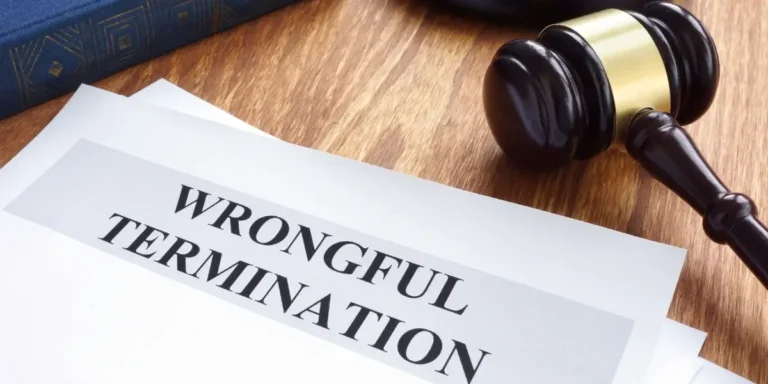Severity Of Illness And Medical Expenses
The severity of a person’s mesothelioma directly impacts the compensation they might receive. Someone with a more advanced stage of the disease, requiring extensive and ongoing treatment, will likely have higher medical bills. These costs can include surgery, chemotherapy, radiation, and supportive care. The more medical expenses a person has, the higher the potential compensation. It’s pretty straightforward, really. Think about it: more treatment equals more bills, and that factors into the overall settlement or verdict.
Lost Wages And Earning Capacity
Mesothelioma can prevent people from working, sometimes for extended periods or permanently. This loss of income is a significant factor in determining compensation. Lost wages include not only the money a person would have earned from their job but also any potential future earnings. If someone was on track for a promotion or a raise, that can be factored in too. It’s about calculating what the person would have earned if they hadn’t gotten sick. This can be tricky, but it’s a crucial part of the claim.
Pain, Suffering, And Emotional Distress
Beyond the financial costs, mesothelioma causes significant pain, suffering, and emotional distress. This includes physical pain, emotional anguish, mental health issues like anxiety and depression, and the overall impact on a person’s quality of life. Compensation for pain and suffering is often a substantial part of a mesothelioma settlement or verdict. It’s hard to put a number on these things, but the legal system tries to account for the real human impact of the disease.
Jurisdictional Differences In Awards
The state where a mesothelioma claim is filed can significantly affect the amount of compensation awarded. Some states have a history of awarding higher amounts in these types of cases. Other states might have laws that limit the amount of damages a person can receive. Also, the specific court and the judge assigned to the case can play a role. It’s not always fair, but the location matters. Here are some things that can vary by jurisdiction:
- The general attitude towards asbestos litigation
- The availability of expert witnesses
- The specific laws regarding damages
- The local jury pool
Understanding these jurisdictional differences is important.
Types Of Mesothelioma Compensation Available
Asbestos Trust Fund Claims
Many companies that used asbestos knew about its dangers but didn’t protect their workers. When these companies faced lawsuits, many set up asbestos trust funds to compensate those harmed. Filing a claim with these trusts is often a quicker way to get compensation than going to court. It’s important to know:
- Each trust has its own rules and requirements.
- The amount you can receive depends on the trust’s assets and the number of claims.
- An experienced attorney can help you navigate the process.
Personal Injury Lawsuits
If you’ve been diagnosed with mesothelioma, you can file a personal injury lawsuit against the companies responsible for your asbestos exposure. These lawsuits aim to recover damages for your medical expenses, lost wages, and pain and suffering. Mesothelioma plaintiffs can pursue this option to seek justice and financial relief.
- These lawsuits can be complex and time-consuming.
- You’ll need to prove that your exposure to asbestos caused your illness.
- Settlements are common, but some cases go to trial.
Wrongful Death Claims
If someone has died from mesothelioma, their family can file a wrongful death claim. This type of claim seeks compensation for the family’s losses, including funeral expenses, lost income, and loss of companionship. It’s a tough time, and the legal process can seem overwhelming, but it’s a way to hold the responsible parties accountable.
- These claims must be filed within a certain time frame, so it’s important to act quickly.
- The compensation can help ease the financial burden on the family.
- The emotional toll can be significant, so support is crucial.
Veterans’ Administration Benefits
Veterans who were exposed to asbestos during their military service may be eligible for benefits from the Department of Veterans Affairs (VA). This can include disability compensation, healthcare, and other forms of assistance. It’s a way for the government to support those who served and were harmed by asbestos. Mesothelioma treatments are often covered, and the VA can provide additional support.
- The VA has specific criteria for eligibility.
- The process can involve medical evaluations and paperwork.
- These benefits can provide significant financial and medical support.
Navigating The Legal Process For Mesothelioma Claims
Initial Consultation And Case Evaluation
So, someone thinks they might have a mesothelioma case. What’s next? Well, it usually starts with a chat. An initial consultation with a mesothelioma attorney is a pretty standard first step. They’ll want to know all about the person’s work history, medical background, and how they think they were exposed to asbestos. This initial meeting helps the lawyer figure out if there’s a case worth pursuing. It’s like a fact-finding mission to see if all the pieces fit together. They’ll evaluate the details and give an honest opinion about the chances of success.
Gathering Evidence And Documentation
Okay, the lawyer thinks there’s a case. Now comes the not-so-fun part: gathering all the evidence. This means digging up old employment records, medical reports, and anything else that can prove asbestos exposure. It’s like being a detective, piecing together a puzzle from years ago. Some things that are usually needed:
- Work history: Where did the person work, and what did they do?
- Medical records: What do the doctors say about the diagnosis?
- Witness statements: Did anyone see the person working with asbestos?
This step can take a while, but it’s super important. The stronger the evidence, the better the chances of getting talcum powder lawsuit settlements.
Negotiation And Settlement Procedures
Alright, the evidence is in, and the lawsuit is filed. Now what? Often, the next step is negotiation. The lawyers for both sides will talk, trying to reach a settlement. This means agreeing on an amount of money that the asbestos company will pay to avoid going to trial. It’s like a back-and-forth, with each side trying to get the best deal. Here’s how it usually goes:
- The plaintiff’s lawyer makes a demand.
- The defendant’s lawyer makes a counteroffer.
- They keep negotiating until they reach an agreement or decide to go to trial.
Most mesothelioma cases actually settle out of court. It saves time and money for everyone involved. But if they can’t agree, it’s trial time.
Trial And Verdict Outcomes
So, settlement talks failed, and it’s time for trial. This is where things get serious. The lawyers will present their evidence to a judge or jury, who will then decide the outcome of the case. It’s like a courtroom drama, with lawyers arguing and witnesses testifying. The jury will consider all the evidence and decide if the asbestos company is responsible for the person’s illness. If they are, they’ll award damages. The amount can vary a lot, depending on the specifics of the case. Keep in mind that South Carolina Supreme Court rulings can impact these outcomes. Trials can be stressful and time-consuming, but sometimes they’re the only way to get fair compensation.
Understanding Average Mesothelioma Compensation Amounts
Typical Settlement Ranges For Mesothelioma
It’s tough to pin down exact numbers when talking about mesothelioma settlements. Every case is different, and a bunch of factors come into play. However, looking at past cases can give you a general idea of what to expect. Most mesothelioma settlements fall within a range, but this range can be quite broad.
Think of it like this: you’re trying to guess how much a house costs. You know some houses sell for $200,000, and others sell for millions. Mesothelioma settlements are similar. The specifics of the case, like the severity of the illness and the responsible parties, really change the potential payout. To get a better idea of what your case might be worth, it’s best to speak with a lawyer who specializes in mesothelioma claims.
Average Verdict Amounts In Mesothelioma Cases
While settlements are more common, some mesothelioma cases go to trial. Verdicts, which are the amounts awarded by a jury, can sometimes be higher than settlement offers. However, they also come with more risk. There’s no guarantee a jury will rule in your favor, or that they’ll award a large sum.
Keep in mind that average verdict amounts can be misleading. A few very large verdicts can skew the average upward, making it seem like most cases win big. In reality, many cases result in smaller awards, or no award at all. Plus, verdicts can be appealed, which can delay payment or even reduce the amount awarded. Here are some things to consider:
- The strength of the evidence presented.
- The skill of the attorneys involved.
- The sympathy of the jury.
Factors Affecting Individual Claim Values
So, what makes one mesothelioma claim worth more than another? Several things:
- The type of asbestos exposure: Was it direct, prolonged exposure, or something more limited?
- The type of mesothelioma: Some types are more aggressive and have a poorer prognosis, which can increase the value of a claim.
- The number of responsible parties: More defendants mean more potential sources of compensation.
It’s also important to remember that each person’s experience with mesothelioma is unique. The impact on their life, their family, and their finances will all be considered when determining the value of their claim. Don’t hesitate to get a case evaluation to understand the potential value of your claim.
Maximizing Your Mesothelioma Compensation
Importance Of Early Legal Action
Time is really important when it comes to mesothelioma claims. The sooner someone starts the legal process, the better their chances of getting a fair settlement. There are a few reasons for this. First, evidence can be easier to gather soon after a diagnosis. Witnesses’ memories are fresher, and medical records are more readily available. Second, statutes of limitations file a strong mesothelioma claim set deadlines for filing lawsuits. Missing these deadlines means losing the right to sue. Finally, starting early gives attorneys more time to build a strong case and negotiate with defendants.
Selecting An Experienced Mesothelioma Attorney
Choosing the right attorney can make a huge difference. It’s not just about finding any lawyer; it’s about finding one who knows mesothelioma cases inside and out. Look for an attorney with a proven track record of success in these types of cases. They should understand the complexities of asbestos litigation, including how to identify responsible parties and how to prove exposure. A good attorney will also have the resources to investigate the case thoroughly and build a strong legal strategy. Here are some things to consider:
- Experience with mesothelioma cases
- Resources for investigation and expert testimony
- A strong record of settlements and verdicts
Comprehensive Documentation Of Damages
To get the most compensation possible, it’s important to document all the ways mesothelioma has affected someone’s life. This includes medical expenses, lost wages, and pain and suffering. Keep detailed records of all medical bills, travel expenses for treatment, and any other costs related to the illness. Also, document any lost income due to being unable to work. It’s also important to keep a record of the emotional impact of the disease, including any mental health treatment or counseling. The compensation settlements and trial verdicts can vary widely, so it’s important to have all the documentation ready.
Impact Of Legislation On Mesothelioma Compensation
Recent Legal Precedents Affecting Claims
Recent court decisions have really shaken things up for mesothelioma claims. One big change is how courts are handling evidence of asbestos exposure, especially when it comes from older cases. It seems like judges are being stricter about what counts as solid proof, which can make it harder for some people to win their cases. Also, there’s been some back-and-forth about how much responsibility companies have if their products only contributed a little bit to someone’s asbestos exposure. This is a big deal because it affects how much money people can get and who they can get it from. You can read more about asbestos exposure on our website.
Potential Legislative Changes In 2025
There’s always talk about new laws that could change how mesothelioma cases work. One thing people are watching closely is a proposed bill that would change the statute of limitations for filing claims. If it passes, it could give people less time to file a lawsuit after they’re diagnosed. This could be a problem for people who don’t realize right away that their illness is related to asbestos. Another thing to keep an eye on is any changes to how asbestos trust funds are managed. These funds are set up to help people who were exposed to asbestos, and any changes to the rules could affect how much money is available.
Statutes Of Limitations For Filing Claims
Each state has its own rules about how long you have to file a mesothelioma claim, and these rules can be tricky. Generally, the clock starts ticking when you’re diagnosed with mesothelioma, but there can be exceptions. For example, if you didn’t know your illness was caused by asbestos exposure, the clock might not start until you find out. It’s super important to talk to a lawyer as soon as possible to figure out the time frame for mesothelioma in your state and make sure you don’t miss the deadline. Missing the deadline means you lose your chance to get compensation, so don’t wait!
Common Challenges In Securing Mesothelioma Compensation
Securing compensation for mesothelioma can be a difficult process. It’s not always straightforward, and several obstacles can arise. Understanding these challenges is important for anyone pursuing a claim.
Identifying Responsible Parties
One of the first hurdles is figuring out who is responsible. This isn’t always obvious, especially when exposure happened decades ago.
- Companies may have changed names.
- Records might be incomplete or missing.
- The specific products causing the exposure may be hard to trace.
Proving Asbestos Exposure
Showing that exposure to asbestos actually occurred is another major challenge. It’s not enough to just suspect exposure; it needs to be proven.
- This often involves gathering old work records.
- Getting testimony from former coworkers.
- Sometimes, it requires extensive research to connect the dots between a person’s work history and asbestos-containing products.
Dealing With Complex Corporate Structures
Many companies that used asbestos have gone through mergers, acquisitions, or bankruptcies. This creates a complex web of corporate entities, making it hard to determine who is liable.
- It can take significant legal work to untangle these structures.
- Figuring out which entity is responsible for paying compensation can be a long and complicated process.
- Financial assistance options may be limited depending on the corporate status of the responsible party.
Learn More About Mesothelioma
Mesothelioma Guide
Mesothelioma Hub
Torhoerman Law
Mesothelioma Guide
Asbestos.Com
Mesothelioma Lawyer Center
Simmons Firm
Weitz and Luxenberg Law Group
Mesothelioma Fund
Lanier Law Offices
American Lung Association










